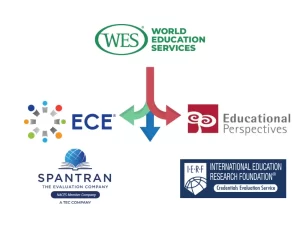You’ve probably heard about educational credential evaluation if you’re an international student or professional looking to study or work abroad. This process helps foreign institutions recognize your academic qualifications. But what exactly do you need to submit? Understanding the documents for credential evaluation can be confusing, but we’ve broken it down into simple steps. Let’s dive in!
Table of Contents
How Educational Credential Evaluation Works
An educational credential evaluation compares your foreign academic records to the education system in your desired country (like the U.S. or Canada). Agencies review your documents for credential evaluation, such as transcripts and diplomas, to determine their equivalent value.
This process is essential for:
• Applying to universities abroad (degree evaluation for international students)
• Getting professional licenses
• Qualifying for jobs that require verified education
Without this evaluation, your foreign degree might not be recognized, making pursuing further studies or careers harder.
Commonly Required Documents
The exact document requirements for credential assessment vary, but most agencies ask for:
• Degree certificates (proof of graduation)
• Official transcripts (detailed academic records)
• Course descriptions (sometimes needed for credit transfer)
• Passport copy (for identity verification)
• English translations (if original documents are in another language)
Many institutions now accept electronic transcripts, making the process faster. However, some still require physical copies with official stamps.
Document Requirements by Evaluation Agencies
Different agencies have specific rules for required documents for credential evaluation. Here’s what some major evaluators ask for:
WES (World Education Services): Electronic transcripts from your university are required.
ECE (Educational Credential Evaluators): They need original or certified copies of your documents.
NACES Members: Most follow strict guidelines on transcript verification for study abroad.
Always check the agency’s website before submitting to avoid delays.
Why Educational Credential Evaluation is Crucial for Academic Success
How to get my foreign degree recognized? Credential evaluation bridges the gap between education systems. Here’s why it matters:
University Admissions: Schools need verified proof of your previous education.
Employment Opportunities: Employers trust evaluated credentials over self-reported ones.
Visa & Immigration: Some countries require evaluations for work or student visas.
Skipping this step could mean rejection from your dream school or job.
Frequently Asked Questions (FAQs)
1. What is a credential evaluation?
It’s a report that compares your foreign education to another country’s system, helping institutions understand your qualifications.
2. Why do I need a credential evaluation?
Without it, your degree might not be accepted for further studies or employment abroad.
3. What documents are typically required for credential evaluation?
Usually, degree certificates, transcripts, and translations (if needed).
4. Can I submit scanned copies of my documents?
Some agencies accept electronic transcripts, but others require original mailed copies.
5. How do I get my transcripts if my university no longer exists?
Contact the country’s education ministry or a recognized archive that stores academic records.
6. Do I need to translate my documents?
Yes, most agencies require certified translations if your documents aren’t in English.
7. What happens if my documents are incomplete or missing?
Your evaluation may be delayed or rejected, so double-check the requirements before submitting.
8. Can I use my high school diploma for evaluation?
Yes, if you’re applying for undergraduate programs, your secondary documents may also need evaluation.
9. How long does the evaluation process take?
It varies, but most agencies take 2-6 weeks after receiving all required documents.
Summing up
Ensuring that your foreign degree is recognized starts with a proper educational credential evaluation. This process verifies your academic qualifications and translates them into terms universities, employers, and immigration authorities understand. To avoid unnecessary delays, it’s crucial to gather all the required documents for credential evaluation, including official transcripts, degree certificates, and certified translations (if applicable).
Different evaluation agencies may have specific requirements, so always double-check their guidelines before submitting your paperwork. Some accept electronic transcripts, while others require physical copies with official seals. Missing or incomplete documents can slow the process, so staying organized is key.
Contact your chosen evaluation agency for clarification if you’re unsure as to where to start. Adequate preparation now will save you time and frustration later, helping you smoothly transition into your next academic or professional chapter. Best of luck on your journey!
Extra Tips:
Keep digital backups of all documents in case of loss.
Start early—some evaluations take weeks to process.
Following this guide will prepare you for a smooth credential evaluation process.



